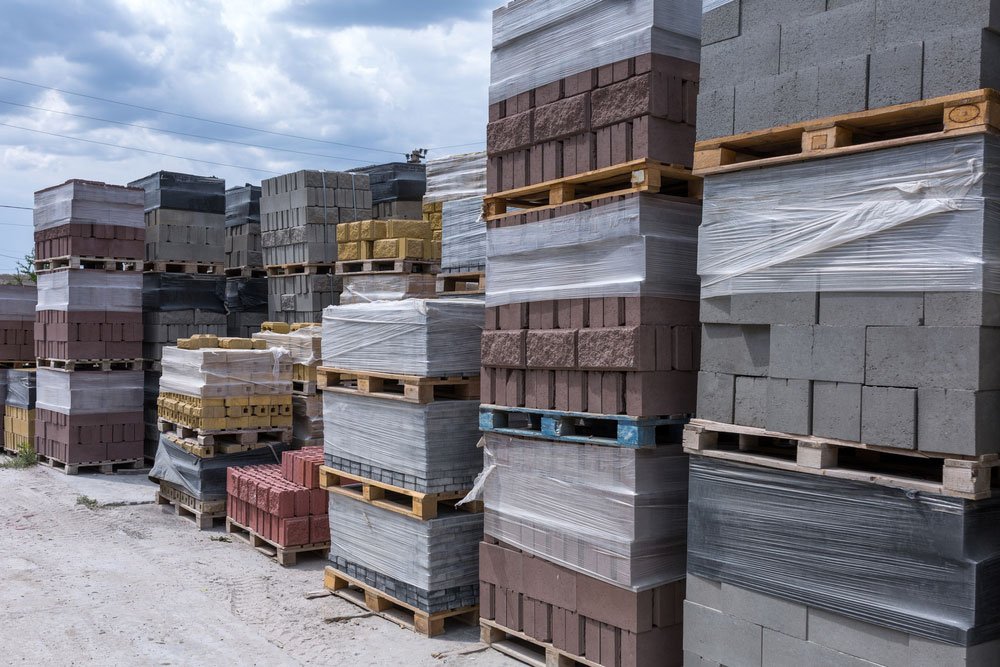

Building Products
Building products encompass a vast array of materials and components used in the construction industry to create residential, commercial, and industrial structures. These products serve as the building blocks of architecture, providing essential elements for the construction, renovation, and enhancement of buildings and infrastructure. From structural materials like concrete and steel to finishing touches like paints and flooring, building products play a crucial role in shaping the built environment and enriching lives.
Structural Building Materials:
- Concrete: The most widely used construction material, concrete provides strength and durability to foundations, walls, and floors.
- Steel: Known for its high strength-to-weight ratio, steel is used in structural frameworks, beams, columns, and reinforcements.
- Wood: A versatile material, wood is used in framing, decking, siding, and interior finishes, offering warmth and aesthetic appeal.
Building Envelope Components:
- Roofing Materials: Including shingles, tiles, metal panels, and membranes, roofing materials protect buildings from weather elements and enhance energy efficiency.
- Exterior Cladding: Materials such as brick, stone, stucco, vinyl, and fiber cement provide insulation, weatherproofing, and architectural aesthetics.
- Windows and Doors: Essential for natural light, ventilation, and security, windows and doors come in various materials, styles, and energy-efficient options.
Interior Finishes and Fixtures:
- Flooring: From hardwood and laminate to tile and carpet, flooring materials enhance comfort, durability, and aesthetic appeal in interior spaces.
- Paints and Coatings: Providing color, protection, and decorative finishes, paints and coatings add personality and longevity to walls, ceilings, and surfaces.
- Fixtures and Fittings: Including cabinets, countertops, sinks, faucets, and lighting fixtures, interior fixtures contribute to functionality and style in kitchens, bathrooms, and living spaces.
Sustainable and Innovative Products:
- Green Building Materials: Eco-friendly materials such as recycled content, low-VOC paints, and energy-efficient insulation promote sustainability and environmental stewardship.
- Smart Building Technologies: Integrated systems like HVAC controls, lighting automation, and building management systems enhance comfort, energy efficiency, and occupant well-being.
In essence, building products are essential elements in the construction industry, shaping the built environment and impacting the way people live, work, and interact with their surroundings. By embracing innovation, sustainability, and quality craftsmanship, building products contribute to the creation of safer, more efficient, and aesthetically pleasing structures that enrich the lives of individuals and communities alike.
Structural Building Materials:
- Concrete: The most widely used construction material, concrete provides strength and durability to foundations, walls, and floors.
- Steel: Known for its high strength-to-weight ratio, steel is used in structural frameworks, beams, columns, and reinforcements.
- Wood: A versatile material, wood is used in framing, decking, siding, and interior finishes, offering warmth and aesthetic appeal.
Building Envelope Components:
- Roofing Materials: Including shingles, tiles, metal panels, and membranes, roofing materials protect buildings from weather elements and enhance energy efficiency.
- Exterior Cladding: Materials such as brick, stone, stucco, vinyl, and fiber cement provide insulation, weatherproofing, and architectural aesthetics.
- Windows and Doors: Essential for natural light, ventilation, and security, windows and doors come in various materials, styles, and energy-efficient options.
Interior Finishes and Fixtures:
- Flooring: From hardwood and laminate to tile and carpet, flooring materials enhance comfort, durability, and aesthetic appeal in interior spaces.
- Paints and Coatings: Providing color, protection, and decorative finishes, paints and coatings add personality and longevity to walls, ceilings, and surfaces.
- Fixtures and Fittings: Including cabinets, countertops, sinks, faucets, and lighting fixtures, interior fixtures contribute to functionality and style in kitchens, bathrooms, and living spaces.
Sustainable and Innovative Products:
- Green Building Materials: Eco-friendly materials such as recycled content, low-VOC paints, and energy-efficient insulation promote sustainability and environmental stewardship.
- Smart Building Technologies: Integrated systems like HVAC controls, lighting automation, and building management systems enhance comfort, energy efficiency, and occupant well-being.
In essence, building products are essential elements in the construction industry, shaping the built environment and impacting the way people live, work, and interact with their surroundings. By embracing innovation, sustainability, and quality craftsmanship, building products contribute to the creation of safer, more efficient, and aesthetically pleasing structures that enrich the lives of individuals and communities alike.

